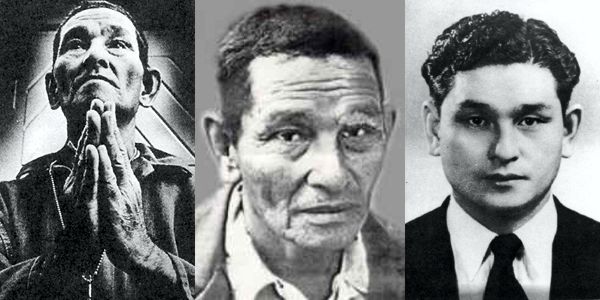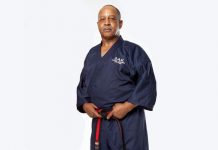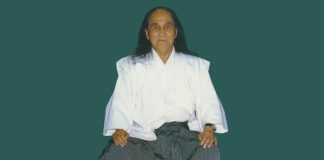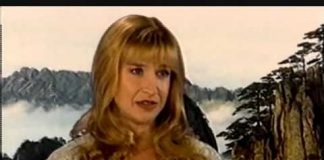As many of you know, I have been doing a pretty comprehensive background check on the history of James Mitose and his contributions to our Kempo/Kajukenbo systems. I have been trying to be totally objective and I was never, originally, a Mitose detractor. I became disenchanted with the Mitose history when it just wouldn’t hold up to scrutiny, not in the least bit. In my quest, I have found some answers. Nothing will ever be totally clear and objective when it comes to the history of any martial art, but what I am looking for is some factual evidence, some circumstantial evidence, a little logic and a basic framework of the man’s legacy that makes sense. I have had my ups and down on it and my investigation is still not complete but here is what I feel is reasonable so far:
Let’s start with Jinshi Eison, fact or fiction? Well, yes and no. Don’t get me wrong I have a definite answer on that but it has a little explaining. Jinshi Eison lived in just the right time period we are looking at, circa. 1200. He studied in China, his Buddhist name was Kosho Bosatsu. So, it looks legit, right? Wrong. The Kanji used for Kosho in this case did not mean ‘old pine tree’. It’s like the kanji used for kara in karate. It can mean China (Tang) or empty. Eison’s life was extremely well documented and nothing lined up and matched.
However, according to Mitose, Kosho ryu is a sect of Zen Buddhism based on the Rinzai Zen which was introduced into Japan in 1191 by the priest Eisai. Mitose considered Eisai, and for that matter Rinzai (lin chi) and Daruma himself as being his ancestors. This is something he prided himself on. Jinshi Eisan was a misinterpretation of Mitose’s words (his English was poor). 1191 was when the religious Rinzai sect (lin chi) Kosho Shorei Ryu was founded. The martial art, Kosho Ryu wasn’t developed until about 350 years later, around 1560. The Tracy’s begin their lineage (which I will get to shortly) at 1232 AD with Zenko Yoshida. Not only is that the wrong clan but you couldn’t possibly have 21 descendants to Mitose in that time period. Martial art ryus weren’t developed that early on, those were the religious rinzai sects that started around circa.1200, the martial art came much later. They’re about 350 years off!
The Yoshida lineage leads to dead ends and where did Kosho come from? Mitose had three grandfathers. Records provided to Shihan Michael Brown, the Sei Kosho Shorei Kai historian, shows three families from Japan. 1) the Mitose family (his father’s side), 2) the Yoshida family (his mother’s biological father), and the Kosho family (his mother’s biological mother). Mitose’s maternal grandparents were not married. His mother was raised by her biological father (Mr. Yoshida) until she was 17 years old, then she was adopted by her biological mother who had married into the Kosho family. Besides the obvious connection with the name Kosho, this was the only grandfather alive when Mitose arrived in Japan in October of 1920.
James Mitose’s maternal grandparents were Yoshida Sakuhei (the father of Mitose Kyoka).
Kosho Toju (the mother of Mitose Kiyoka). Mitose’s grandmother was not the wife of Mr. Yoshida. Kiyoka was the result of an affair. This is in the family record.
The Tracy Yoshida lineage to Kosho ryu has no merit. They do not go back to the family art of Kosho. The Kosho art goes back 21 generations. Mitose’s grandfather, from whom he learned the family art was Kosho Kyohei. This is recorded in the family records although there is no written proof that he trained at the Shaka In Temple as of yet and may never be. There are records there mentioning the term Kosho ryu. A local historian, whose name I do not have as of this posting, stated that martial arts was being practiced there up until just before WW2. The Tracy’s are barking up the wrong tree, lineage tree that is! They traced the wrong grandfather, Yoshida Sakuhei. He wasn’t even alive when Mitose was 4 years old.
Shaka In temple. Kosho monks and martial arts: truth or fiction? Documents provided and further research to confirm this on the internet into historical records shows that in October of 1588 the warrior monks of Shaka In clashed with the forces of Konishi Yukinaga. The battlefield is perserved to this day.
I gratefully acknowledge the assistance of Shihan Mike Brown, historian of the Sei Kosho Shorei Kai for his tireless and unselfish efforts in researching this’ tangled web’. All that I have learned in this post came from Shihan Brown’s research and I take no credit for it other than my continuing efforts in a search for the truth on this enigma.
Respectfully, James Kovacich
Beikoku Fighting Systems






